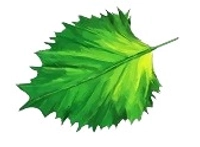Introducing the Dhatura Plant, scientifically known as Datura metel, a potent and revered medicinal herb with a significant place in traditional Indian medicine. Often referred to as Thorn Apple or Devil's Trumpet, the Dhatura Plant is admired for its striking appearance and its array of therapeutic benefits. Let’s explore the medicinal uses of this remarkable plant and learn how to care for it effectively.
Medicinal Uses of Dhatura Plant:
- Pain Relief: Dhatura is renowned for its powerful analgesic properties. It is commonly used in traditional medicine to relieve severe pain, including that associated with arthritis, neuralgia, and rheumatism. The plant’s alkaloids, such as scopolamine and atropine, help in numbing the affected areas, providing significant pain relief.
- Respiratory Health: Dhatura is effective in treating respiratory conditions such as asthma, bronchitis, and chronic coughs. Its bronchodilator properties help in easing breathing by relaxing the bronchial muscles. Inhaling the smoke from burning Dhatura leaves is a traditional remedy for asthma relief.
- Muscle Relaxation: The antispasmodic properties of Dhatura make it useful in relaxing muscle spasms and cramps. It is often used in the treatment of muscle stiffness and involuntary muscle contractions. Dhatura extracts can be applied topically to soothe muscle aches and spasms.
- Anti-inflammatory Action: Dhatura exhibits significant anti-inflammatory properties, which make it beneficial in reducing inflammation and swelling associated with various conditions. It is particularly effective in managing inflammatory diseases like arthritis and inflammatory bowel disease. Applying Dhatura-based poultices can help in reducing localized inflammation.
- Treatment of Skin Conditions: Dhatura is used to treat various skin conditions, including infections, wounds, and ulcers. Its antiseptic properties help in preventing infections and promoting the healing of wounds. Dhatura ointments and pastes are traditionally applied to the affected areas to facilitate healing and provide relief from pain and itching.
Plant Care Instructions:
- Light and Temperature: Dhatura plants thrive in full sunlight. Place your Dhatura Plant in a location where it can receive at least 6-8 hours of direct sunlight daily. The plant prefers warm temperatures and can tolerate temperatures between 20°C to 35°C. It is relatively heat-tolerant but may require protection from extreme cold.
- Watering: Dhatura plants prefer well-draining soil. Water your Dhatura Plant regularly to keep the soil moist but not waterlogged. During the growing season, ensure that the plant receives adequate water to support its growth. Allow the top inch of soil to dry out between waterings to prevent root rot.
- Soil and Fertilization: Dhatura plants thrive in well-draining, loamy soil with a slightly alkaline pH. Use a mixture of garden soil, sand, and organic compost to provide essential nutrients. Fertilize your Dhatura Plant with a balanced fertilizer every 4-6 weeks during the growing season to promote healthy growth and flowering.
- Pruning: Regular pruning helps maintain the shape and size of the Dhatura Plant. Trim back any overgrown branches or foliage to encourage new growth and maintain an attractive appearance. Remove any dead or diseased parts to prevent the spread of infections.
- Pest and Disease Control: Dhatura plants are relatively resistant to pests and diseases. However, they may occasionally be affected by pests like aphids and spider mites. Inspect your plant regularly and treat any infestations promptly with organic pesticides or neem oil.
- Repotting: Repot your Dhatura Plant every 1-2 years to refresh the soil and provide more space for root growth. Choose a slightly larger pot with good drainage to accommodate the expanding root system. Ensure that the new pot provides adequate support for the plant’s growth.
- Caution: While Dhatura has numerous medicinal benefits, it is important to use it under the guidance of a qualified healthcare professional, as it contains potent alkaloids that can be toxic if used improperly.
Please Note: Images are for reference purposes only. Actual product may vary in shape or appearance based on climate, age, height, etc. The product is replaceable but not returnable.
